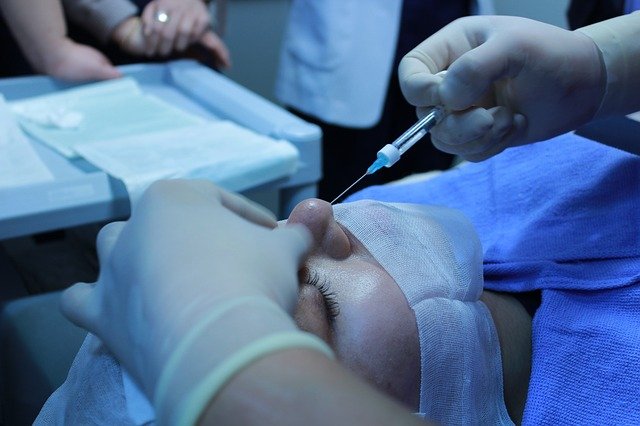Plastic surgery can be divided into two specialties: cosmetic (or aesthetic) surgery and reconstructive surgery. The purpose of cosmetic surgery is to improve the look of an individual, while reconstructive surgery is meant to advance functionality or supposed normal appearance.
The restoration, reconstruction, or altering of the human body requires top-notch professionalism. Apart from academics, there are other important attributes that one needs to have, for example, being patient, hardworking, and disciplined to be a successful plastic surgeon, as explained by Dr. Cat Begovic.
The process of becoming a plastic surgeon is long. For that reason, one should be ready physically and mentally to undergo training and education for more than ten years.
It is very important that your level of academic and scientific ability be balanced to achieve the best possible results for your clients each time.
There are many risks and high expectations associated with the job hence the importance of lengthy preparation. Below are important steps of becoming a plastic surgeon.
Acquire a Bachelor’s Degree
Obtaining a bachelor’s degree is the first level of becoming a plastic surgeon. The programs undertaken here will include biology, physics, and chemistry. Amino Acids, protein structures, and the circulatory system are just some of the areas you will be covering within your degree which, in turn, will allow you to receive a well-rounded education. Alongside this, one can also opt to go for pre-med programs to prepare themselves for graduate study in medicine.
For admission to medical school, you will be required to pass the Medical College Test (MCAT). You can sign up for mcat in person prep.
It is also a requirement to submit a letter of recommendation from professors, reputable doctors, or people well known in the community. Working experience in health care facilities will always work to your advantage when applying to a medical school.
Four-Year Doctor of Medicine Degree Completion.
Before you can participate in post-graduate training in plastic surgery, it is compulsory to hold a Doctor of Medicine (M.D) or the doctor of osteopathy (D.O.) program to attain M.D. or D.O usually takes four years to complete.
Two years will end in one joining a medical school taking advanced courses in anatomy, physiology, biochemistry, among others. This includes proper spelling in anatomy and physiology. The remaining two years will be devoted to clinical rotations to gain experience.
Obtain License
Licenses are not granted automatically to all people with medical degrees. As a medical school graduate, you must receive a license to practice medicine to legally be called a physician. The process will require testing by the medical board.
A license may be rendered invalid if not deemed fit to practice, such as due to health reasons, ethical violations, or lack of competence. The issued license will limit a professional scope of practice
Complete Residency
Once you become a licensed physician, the completion of a residency program will be required. Different countries will have a different duration for the residency programmatic, including clinical rotations in various types of surgery.
A residency program in plastic surgery may cover cosmetic surgery of breast, neck, and head. It may also cover wound healing, emergency care, fluid replacement, and the relation of basic science to surgical techniques. One will also be required to attend conferences, gain technical experience, and conduct research.
Fellowship in a Subspecialty Completion
Fellowships are available in several areas, including microvascular reconstructive surgery, body contouring, craniofacial surgery, aesthetic surgery, and hand surgery. The program will take one year if you want to specialize in a subspecialty of plastic surgery.
Aside from completing clinical training in your specialty, you may also need to complete a research project.
Obtain Certification
Board certification exhibits a plastic surgeon’s outstanding expertise in a certain specialty or subspecialty of medical practice. The certification will play a vital part as it signifies that you have completed a required set of training and educational requirements beyond the minimum requirements for obtaining a license.
One should always take an extensive continuous professional development program to maintain this certification.
Skills to Become a Prosperous Plastic Surgeon
To be successful in this profession or role, an aspiring plastic surgeon generally needs to have outstanding skills, as captured below.
You will also need to market your practice using a website, social media, and traditional advertising. One of the best uses of your marketing funds could be plastic surgery SEO services. They will help potential patients to find your practice and service offerings.
Patience and Stamina
With these skills, surgeons will get through grueling operations. The surgery takes quite some time to complete, so plastic surgeons must stay focused throughout to avoid fatal mistakes
Problem-Solving Skills
Like any other medical field, not everything in operation always goes according to plan. Plastic surgeons should be able to solve problems quickly and effectively to prevent putting the lives of their patients at risk.
Communication Skills
The surgeon will never operate alone. He or she will always need help from other professionals to complete the surgery. They must have great communication skills to facilitate a smooth operation.
Teamwork
Plastic surgeons will always work with the likes of nurses, assistants, and anesthesiologists, while carrying out a surgical procedure, and for this, they must be great team players for a successful surgery.
Related Posts:
- Why Is It Important to Hire a Healthcare Digital Marketing Agency?
- How to Start a Career in Healthcare
- What you don’t know about healthcare and PEMF mats?
- How to Improve Healthcare Staffing
- Research-Oriented vs. Clinical: What Advanced Nursing Degree to Choose